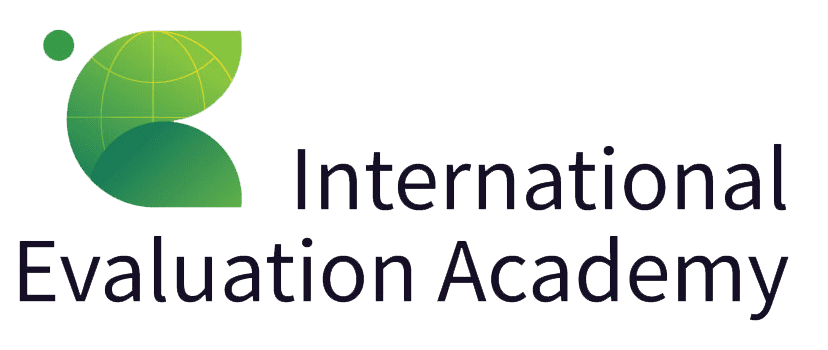The Academy, geared toward transformational change, “visualizes a world where evaluation is an integral part of all governments, civil society, and private sector development efforts.” But it’s not just any evaluation. It’s evaluation that is grounded in a set of principles and values.
I focus here on the values: “We are committed to the values of inclusivity, compassion, competence, courage, and integrity (ICCCI, pronounced ICY for an easy to remember mnemonic!)”
I recall an early conversation among the board members as we discussed how to frame the Academy’s values. We talked about the importance of a mnemonic so that those involved in the Academy can easily bring themselves back to the foundation of their evaluation work.
Now that we have a shared mnemonic, I’d encourage you to take another step in grounding yourself in the values. Create a mental image that brings those values together for you. Here’s mine as an example.
When I saw the 3Cs in the middle of ICCCI, I thought of the story of the city dweller who went to the country looking for Peter Larson’s house. Having forgotten his cell phone and GPS, he stopped at a farmhouse and asked the woman who answered the door if she knew where Peter Larson lived. “Oh, yes,” she said. “Just go three C’s down the road and turn left.” “Three C’s?” the man asked. “What do you mean?” “Well,” she said, “go as far as you can see, then do it again, then again, and then turn left.”
Now when I think about ICCCI, I have an image of myself moving forward as far as I can see on my evaluation journey of systems transformation as part of an inclusive body of evaluators engaged in the Academy. We attend to the landscape where we are, seeing the people and the many other forms of life—from towering trees to the smallest plants—and appreciating the forms of life in the soil invisible to the naked eye. As we move to the next “see”,—the next horizon—the landscape changes. It may be dominated by devastation and destruction of nature and/or people. It calls forth our compassion for all life, having the courage to stand for the well-being and rights of humanity and nature. We are continually developing new competence to ensure that evaluation processes are used with integrity in each situation to transform evaluation and systems at all scales in support of regenerative well-being and rights for all humanity and nature.
I keep in mind that our vision is based on how far we can see with our current knowledge. As we continually move forward while remembering where we have been, we carefully re-evaluate what we consider to be our competence with integrity to ensure that we inclusively embrace life and justice. We continually learn and move to compassionately and courageously stand for social and ecological well-being for all. As we move toward whatever our current vison is, we are prepared to see something over the horizon that provides opportunities for evaluation to be even more life affirming. Many processes of evaluative inquiry have a built-in flexibility, an expectation that we keep adjusting our vision over time as we inclusively move toward it.
All in all, my mental image of ICCCI is engaging collaboratively with others to inclusively, compassionately, courageously move toward our emerging vision with competence and integrity. What’s your mental image of ICCCI?

Written by Beverly Parsons
